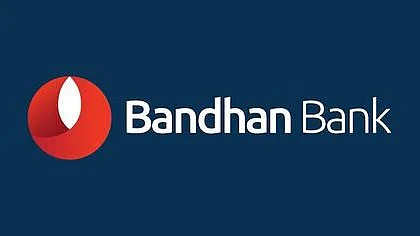Bandhan Bank is set to become the latest listed lender in India as it looks to raise Rs 4,473 crore via an initial public offering that opens on Thursday, 15 March.
In the three-day offer, the company will issue up to 11.93 crore equity shares at a price band of Rs 370-375 a piece.
At the upper end, it will command a valuation of Rs 44,730 crore, according to BloombergQuint’s calculations. That makes it larger than not only non-banking finance company-turned banking entities such as AU Small Finance Bank, Ujjuvan Financial and Equitas Holdings, but also private banks such as RBL Bank, Federal Bank and IDFC Bank in terms of market capitalisation.
The IPO is a combination of fresh issue worth Rs 3,662 crore and an offer for sale of Rs 811 crore by existing investors – World Bank arms International Finance Corp (IFC) and IFC FIG Investment Company. Post the offer, the promoter holding in Bandhan Bank to come down to 82.3 percent from the current 89.6 percent.
An erstwhile microfinance company, Bandhan Financial Services Ltd, the country largest at the time, Bandhan Bank commenced banking operations in August 2015 after receiving a universal banking licence from the Reserve Bank of India.
Business
Bandhan Bank had 887 branches as of December 2017, with a higher presence in north and northeast India. West Bengal, Assam and Bihar together account for 56.37 percent of the bank’s branches. Micro loans still continue to dominate the loan book with a share of 88 percent.
Other retail loans comprise home loans, two-wheeler loans, loan against property and gold loans. Of its 12 million customers, 10 million are women.
Financials
- The bank earned a net profit of Rs 958 crore in the first nine months of FY18 while deposits stood at 25,294 crore.
- Its strength lies in the strong balance sheet scale-up post conversion into a bank from a microfinance company.
Peer Comparison
- The bank’s net interest margin is amongst the highest in the industry.
- At 35 percent, its cost-to-income ratio is amongst the lowest in the industry on account of its focus on cost structures.
- The gross nonperforming assets ratio is healthier than most of the peer companies’ despite a higher share of microfinance advances (loans). The year-ago gross bad loans stood at 0.48 percent, having shot up post demonetisation.
- Its return ratios are superior to peer companies with a return on asset ratio of 4.5 percent in FY17. These ratios will come down post capital infusion.
Valuations
At the upper end of the price band, Bandhan Bank will be available at a multiple of 4.9 times its nine-month FY18 book value post the fresh issue. It’s expensive compared to RBL Bank, IDFC Bank Ujjivan Financial and Equitas Holding. The price-to-book value ratio is closer to HDFC Bank’s.
Brokerage Take
Antique Broking
- Recommend ‘subscribe’
- Relentless focus on cost control will lead to return on equity of 19 percent in FY20e.
- Focus on the underpenetrated region and new products to ensure loan book growth of more than 23 percent over FY18-20e.
- At upper band of IPO, Bandhan will be valued at 3.7 times on FY20e book, which is similar to premium players such as HDFC Bank or AU Small Finance Bank.
ICICI Securities
- Recommend ‘subscribe’
- The stock is available at a multiple of 4.7 times FY18e book value post fresh issue (based on 9-month FY18 annualised PAT) at the upper end of the price band.
- Overall earnings profile looks comfortable, with premium valuations expected to remain.
Centrum Wealth
- Recommend ‘subscribe’ for the long term
- The issue seems richly priced, but the bank has a unique business model
- Listing gains may be capped
IIFL Wealth
- Recommend ‘subscribe’
- The bank would be able to sustain return on assets and return on equity near the 4 percent and 25 percent mark respectively.
- Long term investors would find valuation at 4.8 times Price-to-book value reasonably attractive
(This article has been published in arrangement with BloombergQuint)
(At The Quint, we question everything. Play an active role in shaping our journalism by becoming a member today.)
